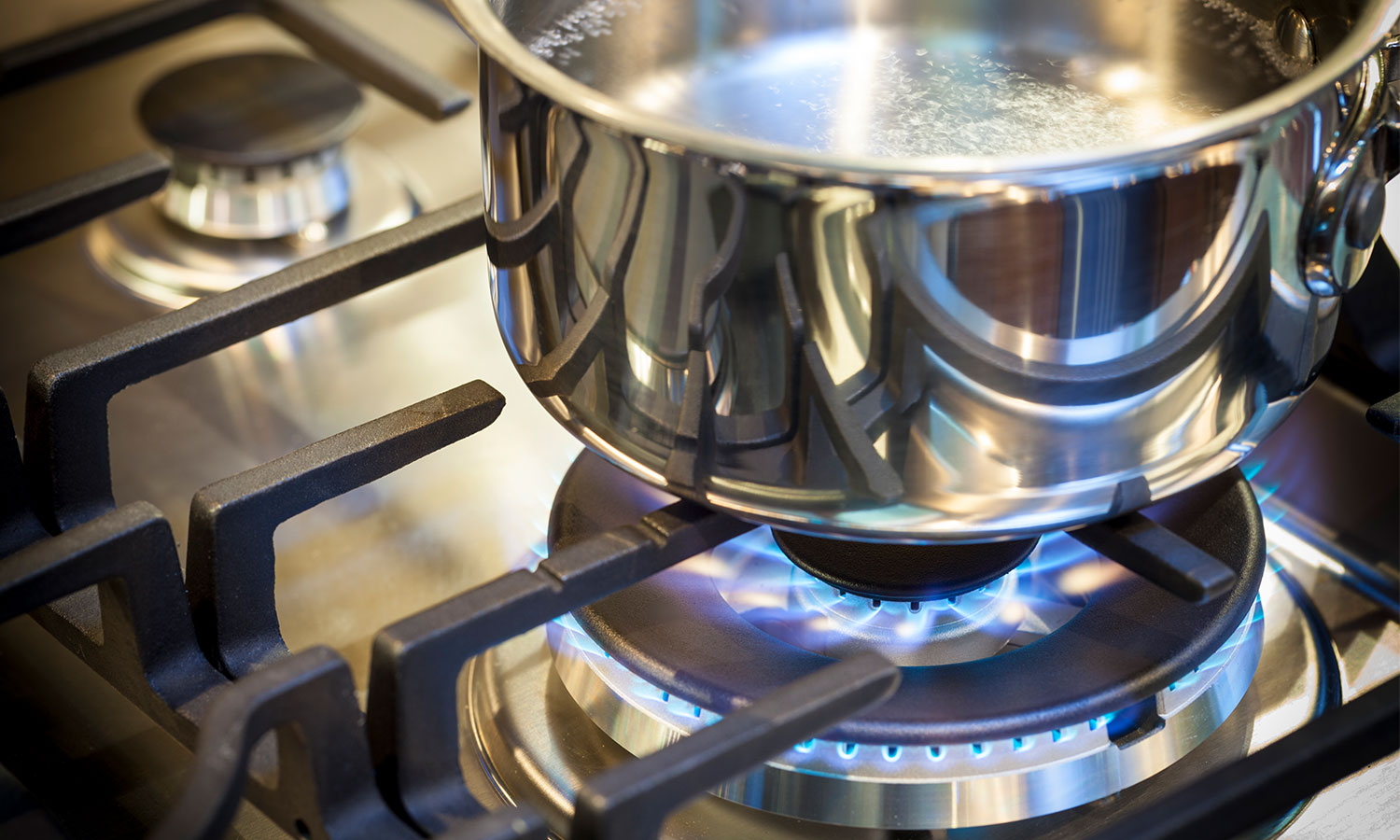Should You Replace Your Gas Stove? What You Need to Know
For some of us, a top-of-the-line gas stove is a luxury — even a bit of a kitchen status symbol. Others love the nostalgia of cooking on stoves similar to those our mothers and grandmothers used.

Alas, recent research studies revealed by the media suggest gas stove emissions may affect indoor air quality. Plus, they may not be as efficient as their electric counterparts.
Should you keep your gas stove or replace it? Well, that depends upon several variables, ranging from budget to risk factors unique to your household. To help you explore this topic more deeply, let’s look at some pros and cons you may wish to consider.
Pros (or why you may want to keep your gas stove)
Precision cooking
Gas stoves heat up faster than electric ones, and the flame is completely adjustable. Gas stoves have lower cooktop temperatures, but they still boil water faster than conventional electric stoves. As a bonus, you can cook directly over the flame to heat tortillas or roast vegetables, a feature many at-home chefs and foodies love.
Beyond the electric grid
If your electricity goes out but the gas remains on during an ice storm or hurricane, you can light the burners and the oven manually. (Keep in mind, however, that this can be a dangerous undertaking and is NOT recommended as a heat source. For cooking, please proceed to use only when it's deemed safe by the authorities to do so.)
Cost
While electric stoves are less expensive to purchase than gas stoves, they do require the installation of a 240-volt outlet — and you may need to modify your electric panel to accommodate the change. Those costs can add up as you consider modifying your kitchen. At the same time, gas stoves are fueled by propane or natural gas, which are generally cheaper than electricity.
Resale value of your home
Even with the rising debate around their merits and safety (more on that in a moment), a gas stove may still add value to your kitchen, enhancing your home’s appeal on the market. According to a 2021 survey1 by the National Association of Home Builders, consumers generally prefer electricity to gas for their air heating and cooling systems but gas for cooking.
Cons (or why you might want to get rid of your gas stove)
More efficient cooking
Electric stoves are more energy efficient2 than gas stoves. If you choose to replace your stove, there’s a wide variety of electric stoves available — and newer models may make cooking more efficient. Induction stoves3 are touted as “the way of the future” in cooking and perform better than all other ranges in testing.
Health concerns
The potential of carbon monoxide poisoning4 is always a concern when gas is involved. And like combustion engines in cars and trucks, burning gas releases chemicals called nitrogen oxides, which studies have shown can trigger respiratory problems.
This can be a problem indoors — especially if the stove is not vented well and fails to direct the chemicals outside your home. Health effects5 could include the development or worsening of asthma and increased respiratory issues. This issue is generating so much interest that, in early 2023, the Consumer Product Safety Commission announced it is researching the issue.6
Insurance
Additional risks associated with natural gas appliances include fire hazards, carbon monoxide and explosions. From higher premiums to specialized coverage, those risks can impact your home insurance.
» Tip: Looking for a short-term solution while you ponder the switch from a gas to electric stove? A carbon monoxide detector7 can help keep your family safe — and may earn you a discount on your home insurance. In fact, gas stove or not, this affordable alarm (about $20 for a basic model) can be a wise investment.
Rebates
While making the switch can be costly, the 2022 Inflation Reduction Act (IRA) could help lessen the expenses through the High Efficiency Electric Home Rebate Program.8 Through it, homeowners making up to 150% of their area median income could receive up to $850 on the cost of an electric stove and $500 more to assist with installation costs. Rewiring America offers a handy tool9 to help calculate whether you are eligible for a rebate.
» Tip: The program is designed to offer rebates through 2031 and each state will determine how to deliver the rebates. Details on how Texas will implement the program10 were still forthcoming at press time for this article.
The takeaway
If you have someone in your home who may be vulnerable to respiratory issues, you may want to consider switching from gas to electric sooner rather than later.
If you’re committed to leaving your gas stove in place, then make sure your kitchen is properly vented so that fumes can escape. Install a good exhaust fan, remember to use it at every meal and consider opening windows while cooking. A final precaution? Install and maintain a carbon monoxide detector with a loud alarm.
If you’re considering replacing your gas stove with an electric model, it may be fruitful to do some research first. Determine your eligibility for rebates — either from the IRA or other rebates offered by your utility company, as well as by stores or appliance manufacturers. Finally, to cut down on your long-term operation costs, consider Energy Star-approved cooktops or ranges.
No matter what you decide to do about your gas stove, make sure you know how your choice impacts your homeowners insurance — and be sure you have the right policy in place to help protect you and your family. RBFCU Insurance Agency can help you learn what coverage is right for your home. Request an online quote* now.

